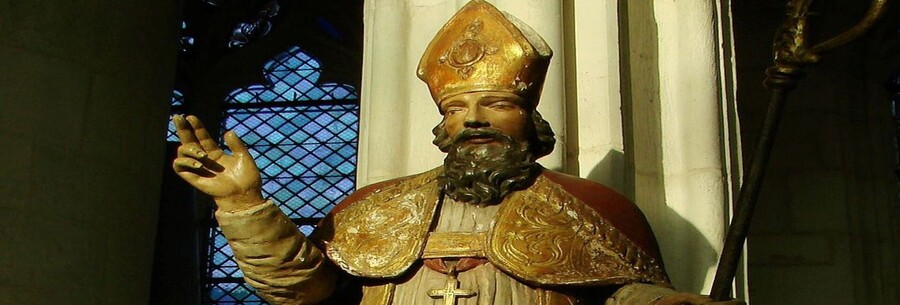Pope Nicholas I, also known as Saint Nicholas the Great, left his mark on the history of the Catholic Church in the 9th century. Born in Rome around 800, he became Pope in 858, succeeding Pope Benedict III. His life was shaped by crucial theological and political challenges that made his pontificate a pivotal period.
Nicolas I was born at a time of political and ecclesiastical upheaval. His election as Pope in 858 came at a time when relations between the Church and the Empire were often tense. From the start of his pontificate, he was confronted with major issues, including the question of papal authority and tensions with the Carolingian Empire led by Emperor Louis II.
One of Nicholas I's most significant contributions to the history of the Church was his role in defending papal authority. He asserted that the Pope had supreme authority over all religious matters and could intervene in the affairs of local bishops. This vigorously asserted position helped to strengthen the power of the Holy See over the following centuries.
Another major challenge of his pontificate was the Photian quarrel. Nicholas I clashed with the Patriarch of Constantinople, Photius, over theological and political conflicts. The quarrel led to a schism between the Church of the East and the West, marking a persistent division in Christianity.
Nicolas I was also deeply committed to pastoral and spiritual issues. He encouraged monastic life, promoted the celebration of the sacraments and strove to maintain ecclesiastical discipline. His passion for the Orthodox Catholic faith and his zeal for preserving ecclesiastical traditions leave a lasting legacy in the Church.
His pontificate was also marked by internal challenges, including conflicts with dissident bishops and priests. However, Nicholas I was unyielding in his defence of the Catholic faith, which strengthened the cohesion of the Church.
Nicolas I died on 13 November 867, leaving behind an important legacy in the history of the Church. Although he has not been officially canonised, he is often honoured as a saint because of his exemplary life and his crucial role in strengthening papal authority. Theologians and historians generally recognise the importance of his pontificate in the development of the papacy and the preservation of the Catholic faith.




















